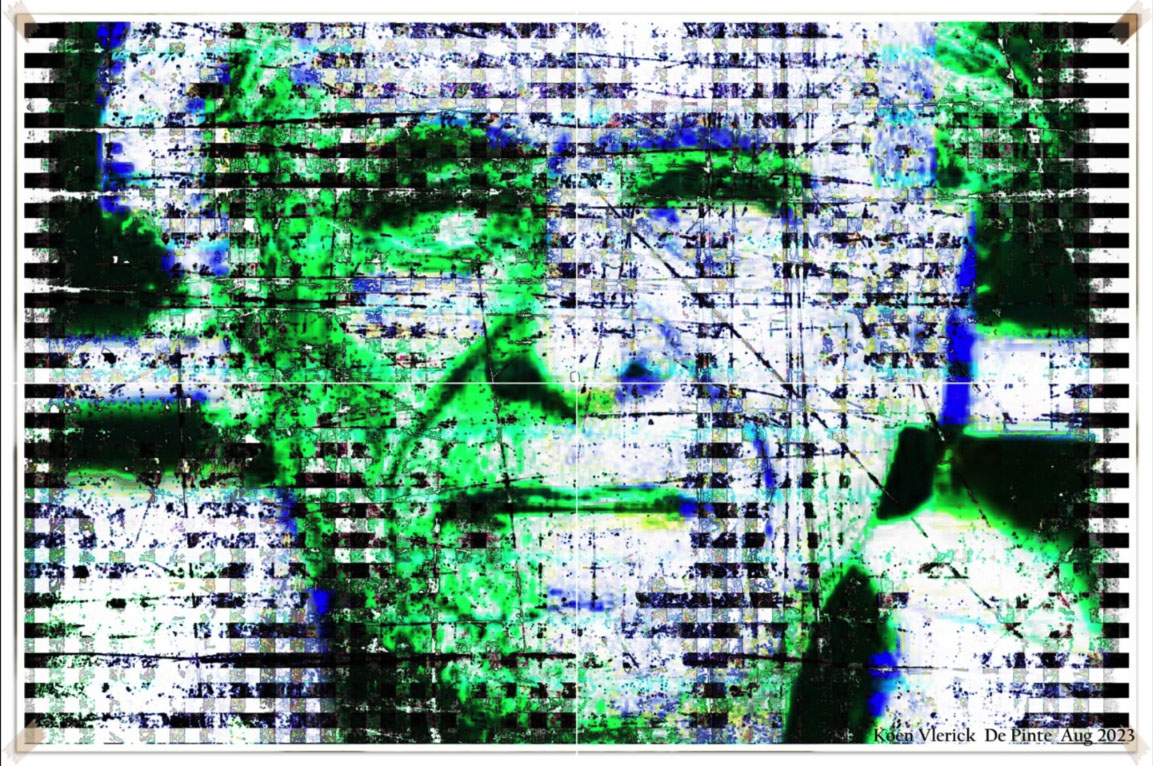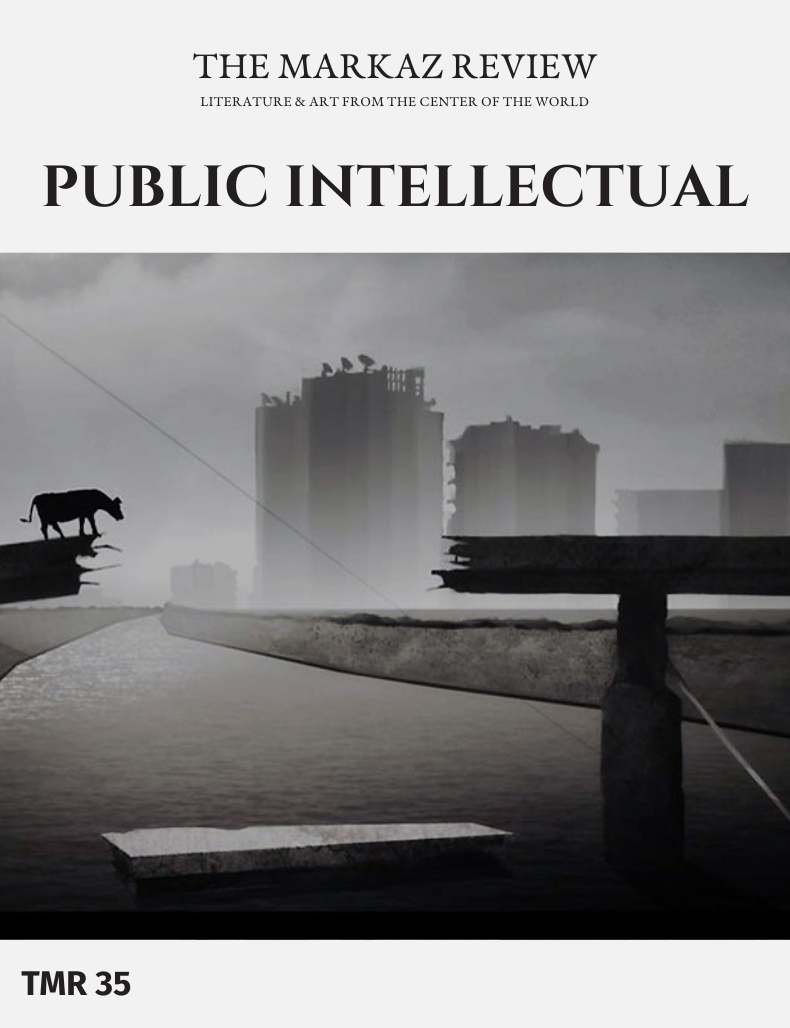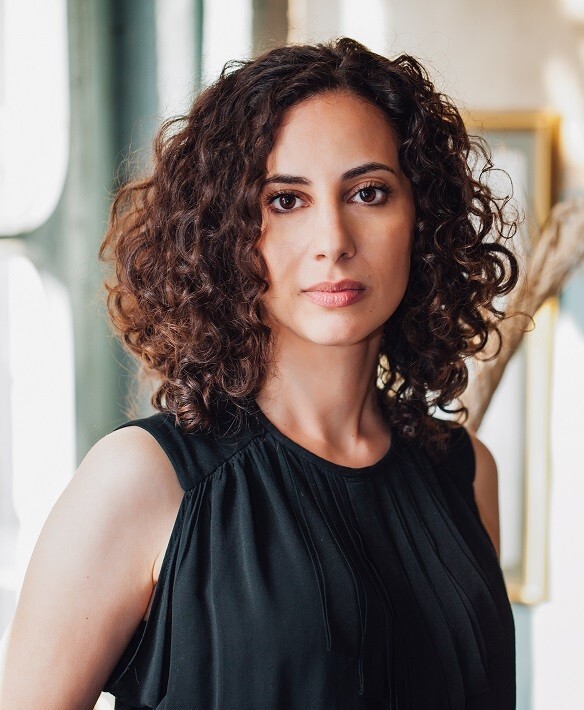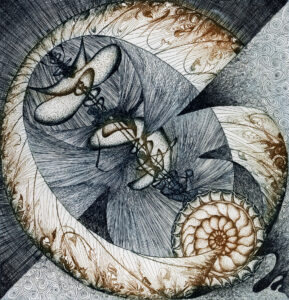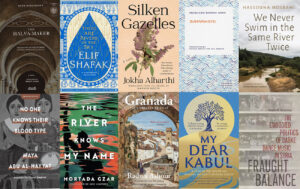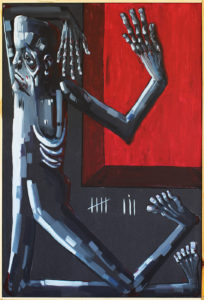One man’s religious nightmare brings him face to face with an unlikely public intellectual.
I feel the boiling hot blood. The iron nails, pain gushing out from under them at the moment they pierce the flesh and bone, fixing me to the cold wood. But nothing cures the pain from this crown of thorns. Nothing cures the pain of my loneliness. The betrayal of my disciples, their denial of me — there is no cure for that. There is no cure for the diseased world propping itself up against my bent back.
Raised above this hill I watch everything, witness the devastation. Will anyone wake them? I tried and paid for it with a river of my blood. And so, now my life flutters above me like a flock of migrating birds whose journey has been blighted by dried out oases.
Rain.
It has arrived to wash me of my blood and their sins.
I shall close my eyes and sleep.
Suspended.
Standing.
As I am, I shall sleep.
I shall drift into a long sleep.
He awoke to a sudden clap of thunder; the glow of lightning withdrawing from his room as quickly as it had appeared. To the sound of the rain beating down, he noticed that the light had not faded from a space on the wall in the shape of a door. A rectangle that still gave off a dim, muffled glow.
So that is the answer? I had always hoped he would save me, that a window would be opened looking onto my peace of mind. A window I could look out of to see what lies beyond this prison. I dreamt of a window, and a door has appeared. This is my omen. It is my sign. I will rise.
He got out of bed and walked toward the light/door. His arm reached into the luminous portal and disappeared. He pulled it out and stared at it for a long time. It was still there, nothing about it had changed except that it was as cold as though he had plunged it into ice.
The light.
A barrier between our ignorance and his knowledge.
A barrier between our weakness and his power.
A barrier between our submission and his will.
Here it is, shimmering like water on the wall of my room/prison: cold, transparent, glistening light.
I am ready.
I will enter it.
When he passed through the illuminated door, he came to a long tunnel that extended into darkness. He trembled with fear, with cold, with hesitation. It occurred to him that this was the second time in the last few hours that his doubt had defeated his certainty. We are moths, falling into the light/fire and burning up. As soon as he saw that particular fire, he decided to turn back. And when he turned around, a long tunnel extending into darkness lay before him.
Before he gave into regret and despair altogether, a low, distant wail began to leak in through the walls, collide into his ears. He walked forward and the sound came closer, began to take form — until a thin, bearded, bloodied man stood before him on a cross.
Now, he fell to his knees and raised his arms in supplication.
“I’m not who you think, man. My name is Charles Bukowski. The guy you thought you found is out there on one of the older crosses. All you’ll get out of looking for him is a waste of time. We all speak the same language here, with the same tongue — even if the words are different. Listen man, everyone has to carry their sins, for all the crimes they’ve committed against the world. For the shameless flags of selfishness they’ve raised, for the plagues of destruction they’ve brought with them, for the darkness that grew out of the spark of their consciousness. We here are the ones who questioned, who examined, who weren’t scared to criticize. We’re the ones who tried to open the eyes of our brothers and sisters even when they didn’t want us to, who tried to pull them out from under the comforter on a cold day, who stood between them and their coloured delusions. We here carefully let our blood drip so that others like us can rise, bold and brazen. We are the Illuminati of the universe, destroying the devastation. Man, I don’t know which of your virtues opened this window onto us, but you have to choose. This empty cross next to me, or your warm bed.”
And the distant wail returned, and the man on the cross did not answer a single question.
It was a beautiful morning. Birds chirping, clouds parting away from the sun. He opened his eyes and was struck by a pitying look from a man on a cross. For a moment, he thought he saw his own face above the man’s shoulder but — as soon as he shook his head — that doubt which clings to the first seconds of waking faded away. His certainty crystallized when he opened the bedroom door and the distant sound reached him. The sound of the television in the living room that he keeps turned on day and night.
Hisham Bustani’s fiction has been collected in anthologies such as The Best Asian Short Stories; The Ordinary Chaos of Being Human: Tales from Many Muslim Worlds; The Radiance of the Short Story: Fiction From Around the Globe, and Influence and Confluence — East and West: A Global Anthology on the Short Story.



